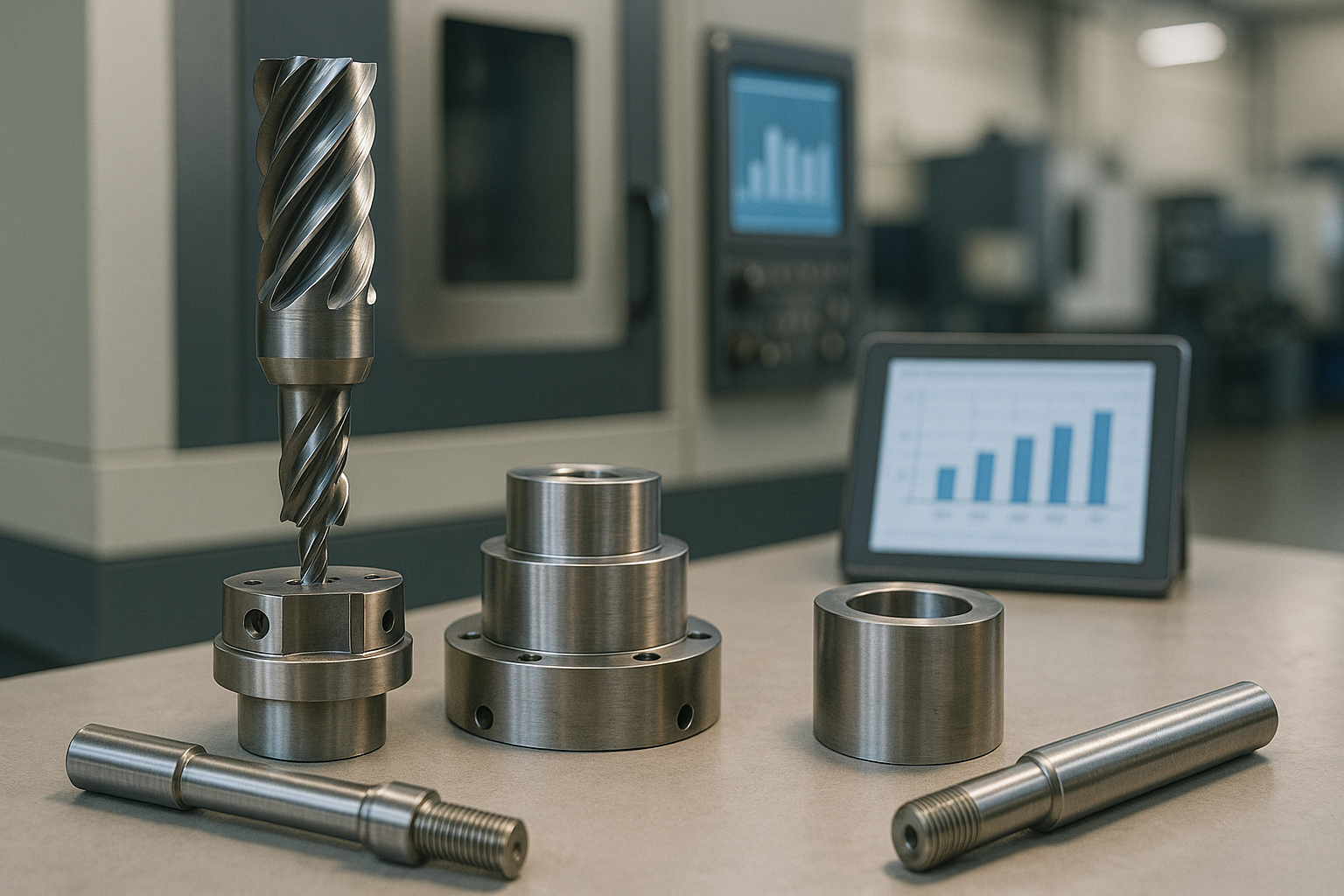
What is the OEE of a Tool and How to Optimize It with Machine Data
Introduction
In modern manufacturing, the lifespan of cutting tools is a key performance factor. It directly affects productivity, part quality, and OEE (Overall Equipment Effectiveness).
Thanks to real-time monitoring, it’s now possible to track, analyze, and optimize tool usage at every stage of the process using data generated by CNC machines.
What Is Tool Life?
Tool life refers to the period during which a cutting tool remains effective without compromising machining quality.
Signs of tool wear or end of life include:
-
Poor surface finish
-
Unusual heat buildup
-
Vibrations, noise, or tool breakage
-
Decline in OEE
Poor management of tool life leads to unplanned downtime and defective parts, negatively impacting OEE.
How to Measure Tool Life
-
Effective cutting time
-
Number of parts produced
-
Cutting distance or volume
With an OEE software, tool activity can be automatically tracked, wear can be detected, and smart alerts can be triggered.
Factors That Affect Tool Longevity
1. Cutting Parameters
Incorrect speed and feed settings accelerate wear.
2. Machined Material
Harder materials reduce tool life, requiring proper machine settings.
3. Inadequate Cooling
Ineffective coolant systems cause overheating and excess friction.
4. Tool Quality
Poor sharpening or low-quality tools reduce safe machining time.
5. Machine Condition
Poorly maintained machines increase instability and premature tool wear.
The Link Between Tools and OEE
Effective tool management enables:
-
Reduced machine downtime
-
Consistent product quality
-
Fewer rejected parts
-
Improved production KPIs on shop floor dashboards
How to Optimize Tool Life with Machine Data
1. Real-Time Wear Monitoring
Sensors (temperature, vibration) + production tracking software = proactive detection.
2. Cycle Time Analysis
An overloaded tool wears faster. KPI dashboards help adjust settings in time.
3. Predictive Maintenance
Based on actual tool behavior, not arbitrary intervals.
4. Tool History
With OEE software, you can track each tool’s performance and refine strategies.
5. Smart Operation Planning
Better task allocation avoids unnecessary stress on certain tools.
Best Practices to Extend Tool Life
-
Follow recommended parameters
-
Check tool holder condition
-
Maintain effective coolant flow
-
Regularly clean contact zones
-
Train operators to spot wear indicators
Use Case: 30% Reduction in Machine Downtime
An aerospace manufacturer:
-
Implemented real-time monitoring software
-
Integrated a tool management module
-
Optimized production planning and CNC programs
Results:
-
30% reduction in unplanned machine downtime
-
20% reduction in tool replacements
-
Improved finish on critical parts
-
Without slowing production or changing suppliers
The Operator’s Role
Even in automated environments, operators are key:
-
Observing tool condition
-
Responding quickly to wear
-
Adjusting CNC programs in the field
-
Feeding data into production dashboards
Conclusion
Tool life is not a secondary variable; it’s a direct lever on profitability, quality, and OEE.
By combining:
-
OEE software
-
Visible production KPIs on intelligent dashboards
-
Real-time monitoring + smart planning
Manufacturers can turn tool management into a lasting competitive advantage.



%20(1)-1.webp?width=352&name=cc%20(1)%20(1)-1.webp)

